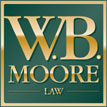
Bankruptcy Lawyer
Bankruptcy is necessary for some people or businesses under certain financial conditions. When debts become too burdensome and difficult to repay then filing for bankruptcy may be the strongest option for overcoming these difficult financial circumstances. Filing for bankruptcy can also be a difficult thing to undergo and navigate. That is why it is crucial to understand more about the process and how it works. There are a few different types of bankruptcies. Some of these are filed by businesses, municipalities, and corporations, and others are filed by individuals. Keep on reading to find out more about bankruptcy and which one might be right for you as a business owner or as an individual.
Different Types of Bankruptcies
There are quite a few different types of bankruptcies that individuals and businesses or corporations can file for. Some of these types are for individuals who will be put on a repayment plan over a certain period of time while others will see themselves having to liquidate assets. As for businesses and corporations, they can also file for bankruptcy. When they file for bankruptcy they are to find a way to repay debts to creditors. They oftentimes can also continue running the business or company on a daily basis while reshuffling and reorganizing their debts and finances. When someone hears about a large company going through bankruptcy that is what typically entails. They agree to a plan with creditors to repay debts while still remaining in business to carry out daily operations.
Business/Corporation/Municipality Bankruptcy VS Individual Bankruptcy
There are two different kinds of bankruptcy that an individual may file for. These are chapter 7 and chapter 13 bankruptcies. Chapter 7 will see someone liquidating assets with the goal of paying off debts through that liquidation. Houses and certain other items may be exempt from liquidation. Chapter 13 will see someone agree to a plan with creditors to pay back their debts over a certain period of time. The period of time is generally for about 3 to 5 years and the amount they are to pay monthly will depend on their income and other financial details. As for businesses and corporations, they generally file for chapter 11 bankruptcy. Under this bankruptcy type, a court and creditors will agree on a plan for the corporation or business to continue operating while repaying their debts. Farmers and fishermen can keep their businesses operating along with their equipment when they file for chapter 12. Municipalities, like school districts and towns, file for chapter 9 bankruptcy to pay off their debts to creditors.
Professional Assistance
Professional assistance for bankruptcy can be found from professionals and lawyers who work in this realm. These types of professionals and lawyers have the knowledge and experience to help their client’s overcome bankruptcy and be given terms that are achievable for them. Consider reaching out to a bankruptcy lawyer residents turn to from The Law Offices of Neil Crane for assistance.
